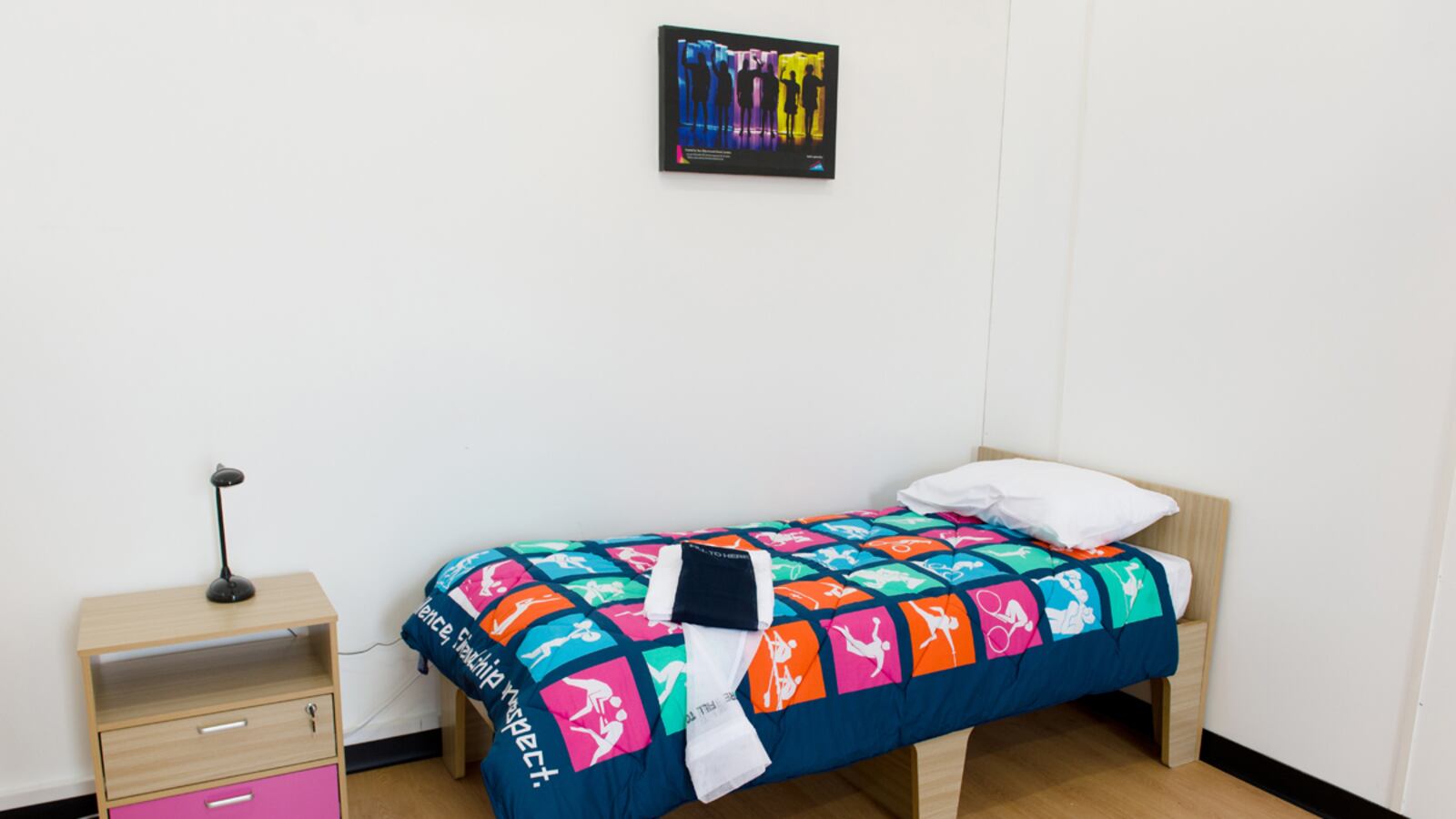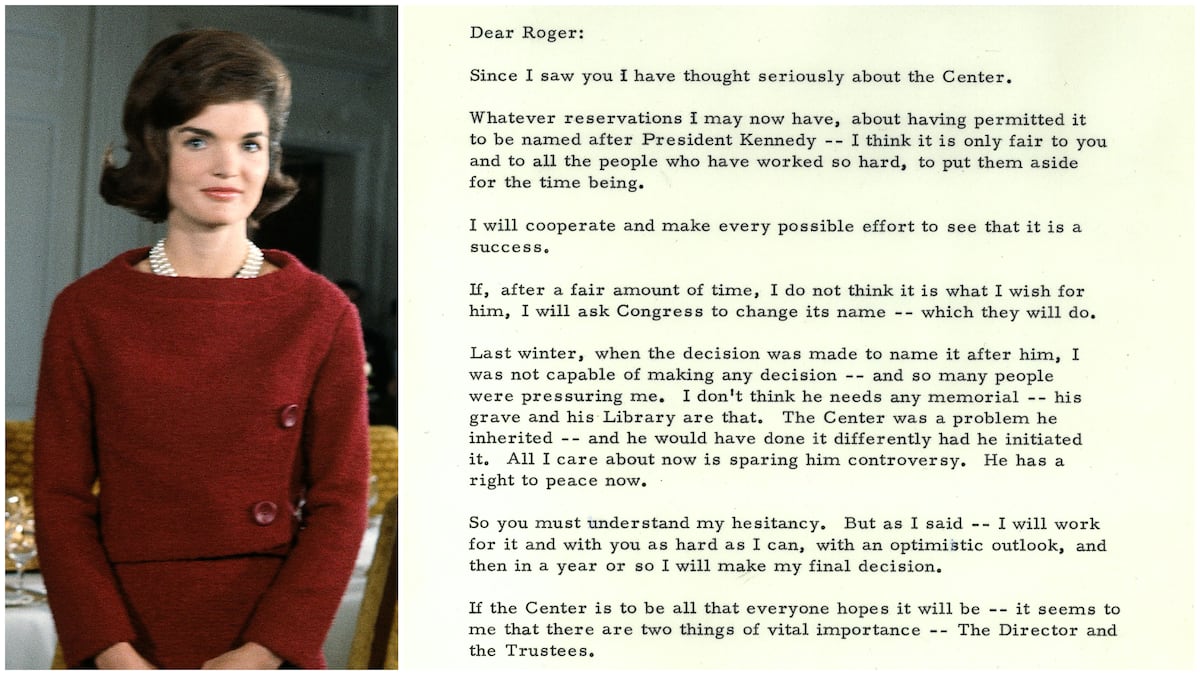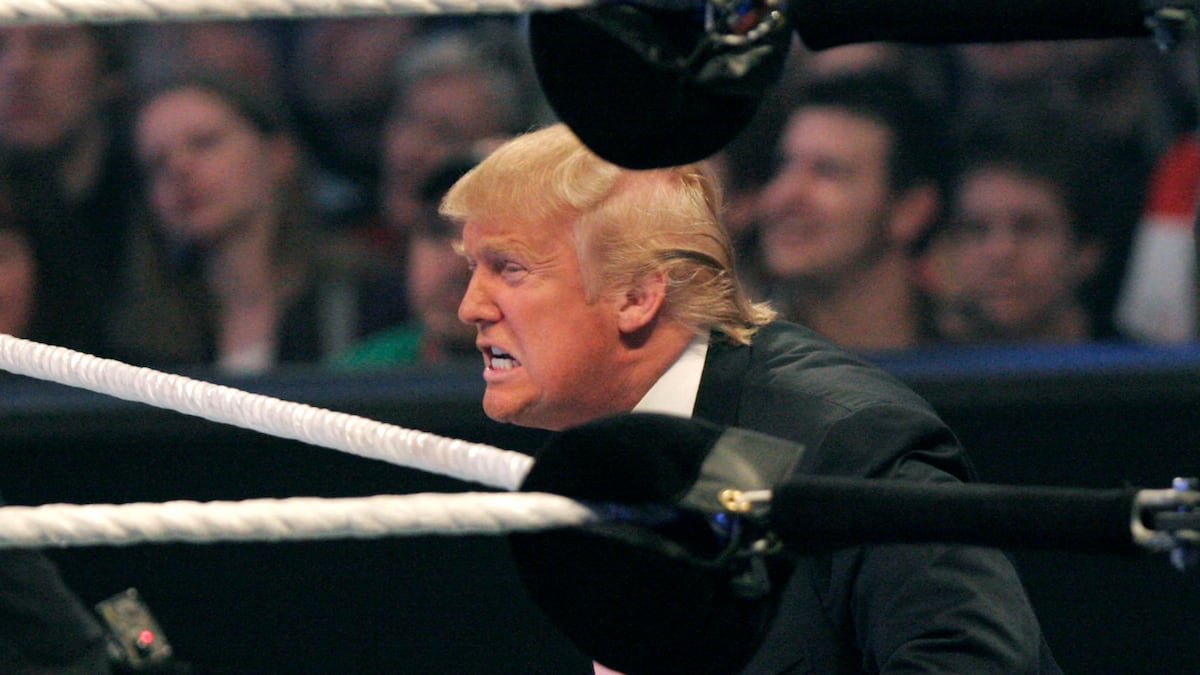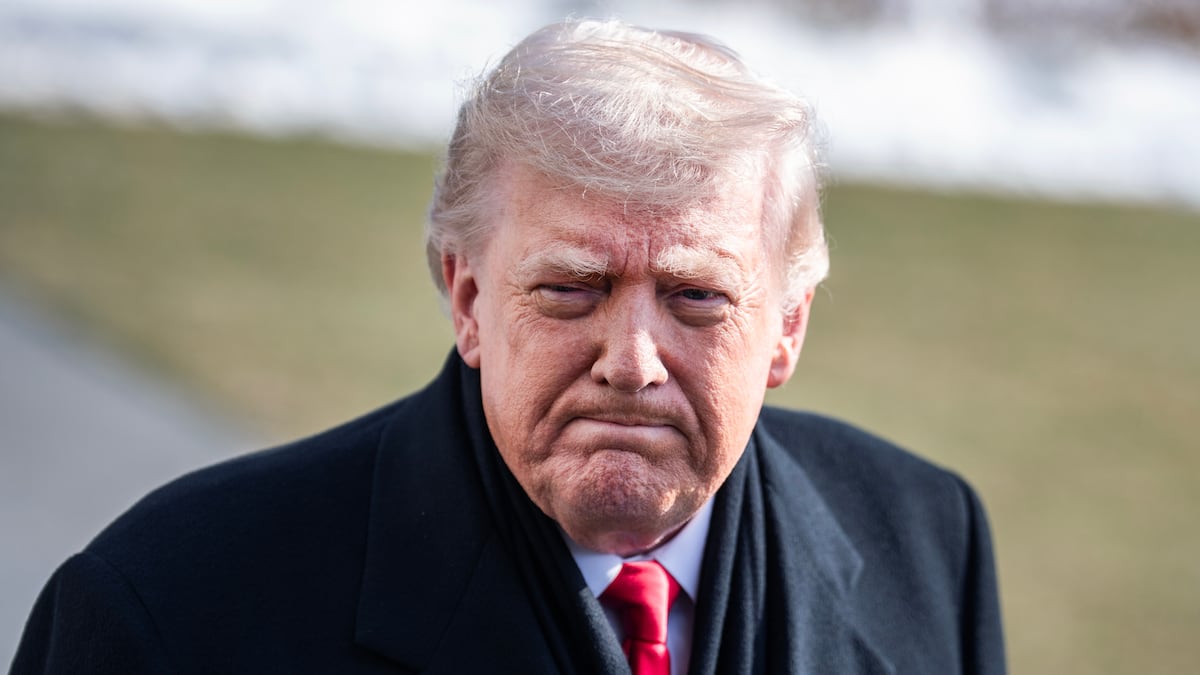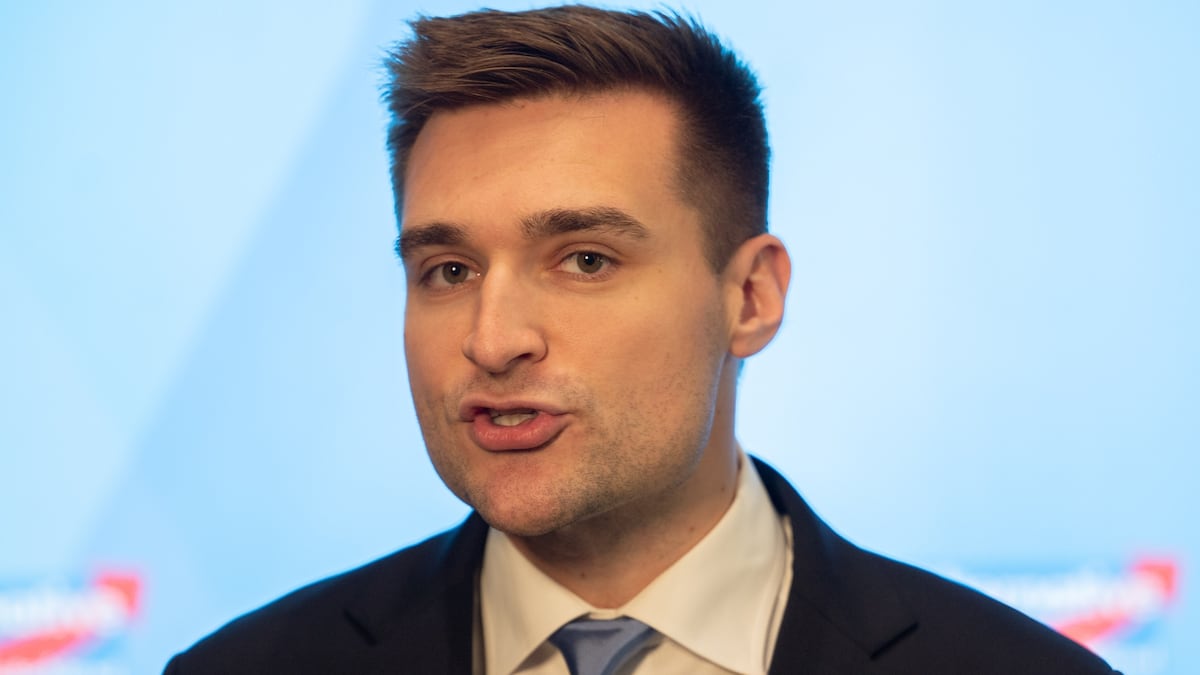On Monday, London’s Olympic Village opened its 2,818 apartments to the best athletes on the planet. For the next four weeks, the village will house an array of personalities, ages, and cultures—all in peak condition and many focusing on a very precise and demanding form of physical activity: sex.

“It’s the most testosterone-fuelled place on earth,” said Russell Mark, a gold-medal–winning Australian target shooter, speaking from his shared room in the village. “People are releasing their frustrations at the end of their event, and so generally that’s when a lot of this takes place. Once your event’s over, you let your hair down.”
Mark, a six-time Olympian and no stranger to village life, admitted that inter-athlete relationships—however fleeting—are an ever-increasing occurrence. Olympic officials seem to agree, in actions if not in words. At the 2000 Olympics in Sydney, the Australian organizing committee distributed 45,000 free condoms in the village. Eight years later in Beijing, 70,000 condoms—labeled with the phrase ‘Faster, Higher, Stronger’—were exhausted and 20,000 more were ordered. This year in London, the Olympic organizing committee is providing 150,000, using special dispensers which contain a message promoting sexual health. Averaged among 10,490 athletes, that’s enough condoms for every athlete to have sex 15 times over the Olympics’ three weeks—double that if, as some claim, they’re all having sex with each other.
“Sex is obviously getting more popular there, or more people are practicing safe sex. One or the other,” Mark said.
Conditions would seem to be ideal for sex in London: The village is smaller than Beijing’s, which itself was smaller than that in Athens in 2004. There are 16,000 single beds, and each apartment accommodates four, six, or eight athletes. There is a gym, an arcade, beer halls and a 24-hour McDonald’s. In short, opportunities to connect will be rife.
But not everyone is having an easy time of it. Mark himself would like to have sex with one of his teammates—skeet shooter Lauren Mark, who is also his wife. But the two have not been allowed to share a bed on the grounds that it would be “putting other athletes out,” as Mark said he was told by Australian Olympic officials.
“I wanted to do something that is not considered normal and my argument is, why isn’t it considered normal? People have sex every day of their lives. Why am I now forced to wait until my wife’s teammates leave the room?”
The Marks aren’t the only ones whose sex lives are a bit complicated: In May, U.S. hurdler Lolo Jones admitted that maintaining her virginity was even harder than training for the Olympics. By July, her U.S. teammate Hope Solo, the soccer team’s goalie, had taken to the press about her life as a professional athlete, recalling rambunctious all-night partying with the actor Vince Vaughn and sneaking back to her room with another celebrity she declined to name. Solo estimated “70 percent to 75 percent of Olympians are having sex during the Games.
Not everyone is playing along, however. Geena Gall, an American 800-meter runner making her Olympic debut this year, is being sequestered by her coach at her training base in Teddington, in southwest London. “I’m going to the Opening Ceremony but I’m not going to stay in the village until three days before my event begins, just to get away from all that. It’s a distraction, and from what I’ve heard from other athletes who’ve been there before it’s a lot to handle.”
While the British Olympic Association has “made it clear that this is a shared accommodation space and athletes need to be mindful and respectful,” they will not be enforcing a curfew. BOA spokesperson Darryl Seibel acknowledged to The Daily Beast that sex in the village “happens,” but he said “it is a highly personal matter and none of our business.”
The International Olympic Committee took the same line, releasing a statement saying that they “leave it up to the discretion of each athlete, as it is a private matter."
Of course, it’s not just sex that the athletes indulge in during their three-week “summer camp,” as the Village was described by Nick Symmonds, the top U.S. 800-meter athlete. Many of the sportsmen and sportswomen can be found in the dining hall after their events—a time which has come to be known as “Days of Glory,” Symmonds said.
“Athletes keep a very rigorous diet going into something like this, and there are the ones who, as soon as their event’s over, you see with their tray piled high with McDonald’s and chocolate cake. The big one for me is alcohol.”
Indeed, in The Secret Olympics, published in May, an anonymous British athlete describes how liquor is hidden using water bottles and other athletes relax with some smuggled marijuana. (All post-event, of course.)
It’s logical then, that the swimmers—whose events are finished by the end of the first week—have the biggest reputation for indulging in the vices.
“In Beijing we had a beautiful 50-meter pool where everybody was always lounging around, hanging out. It feels like the first day at college when you walk in and you’re looking around. The body types at this level are so well defined,” Symmonds said. “You certainly hear about things happening, but there was really no time for me to explore those sides of the Olympics. It’s nice that the men’s 800 is a little bit earlier this year so I’ll get to see what that’s all about. I guess fingers crossed, right?”

